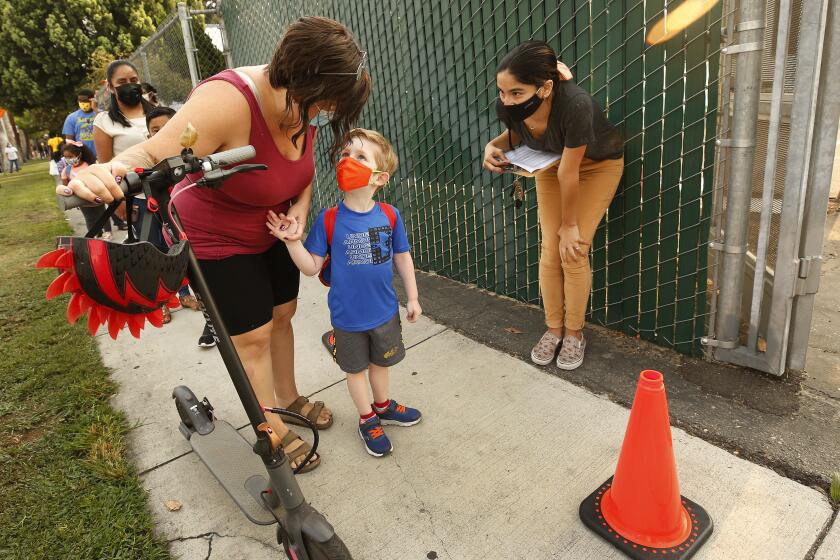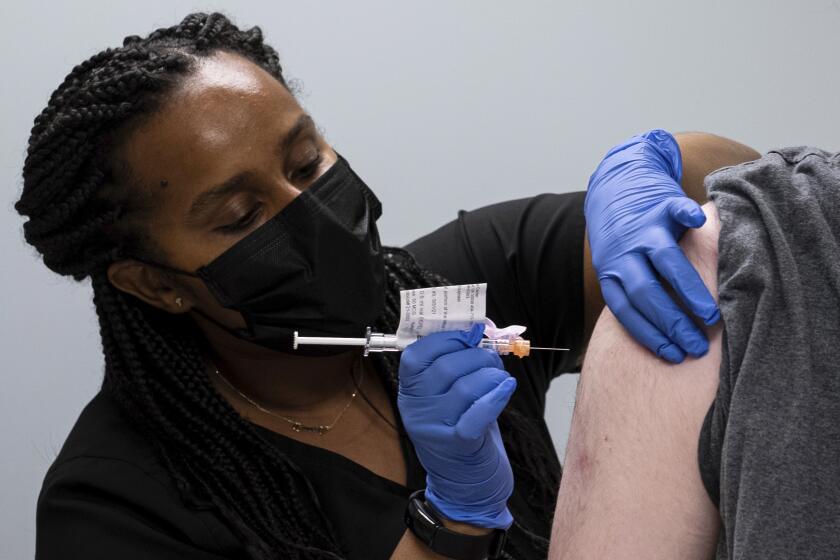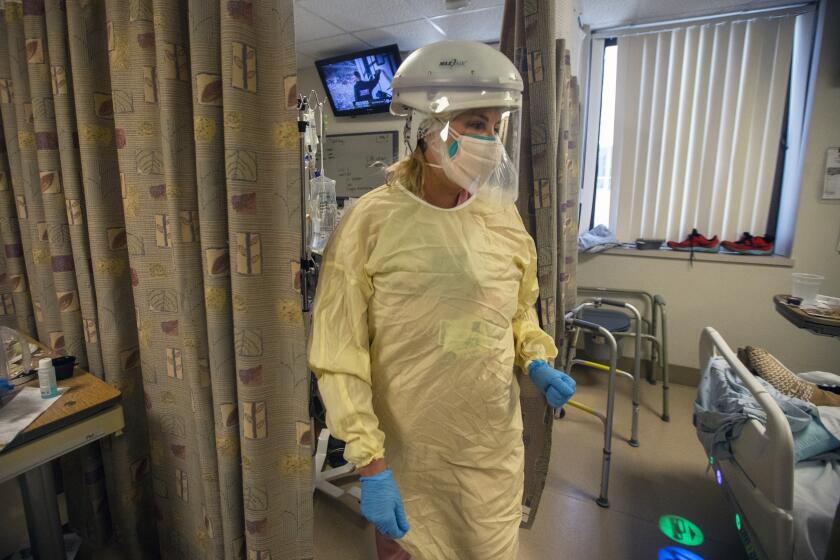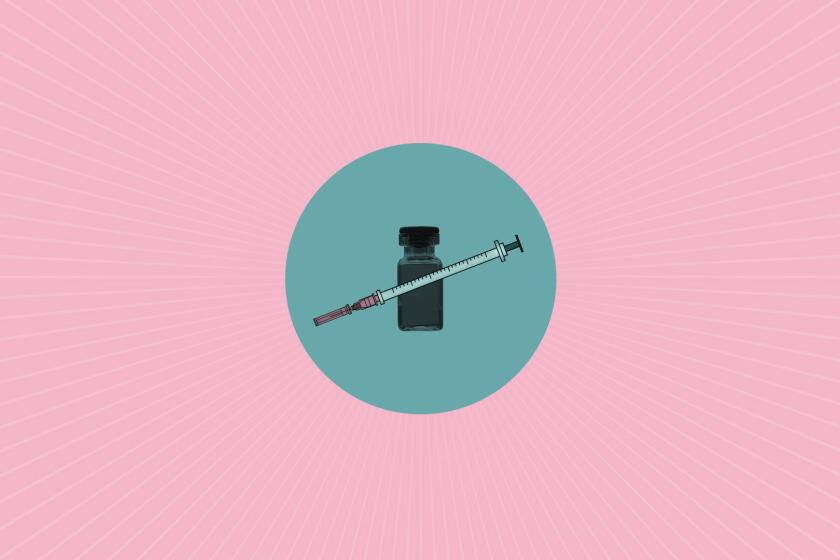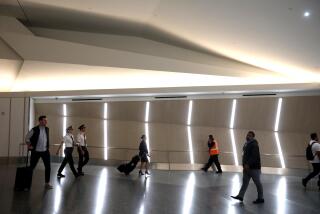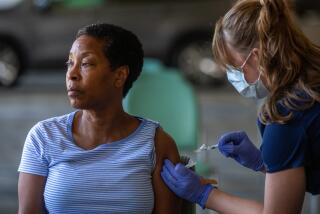Immunocompromised? Here’s how to get your third dose of the COVID vaccine in L.A.
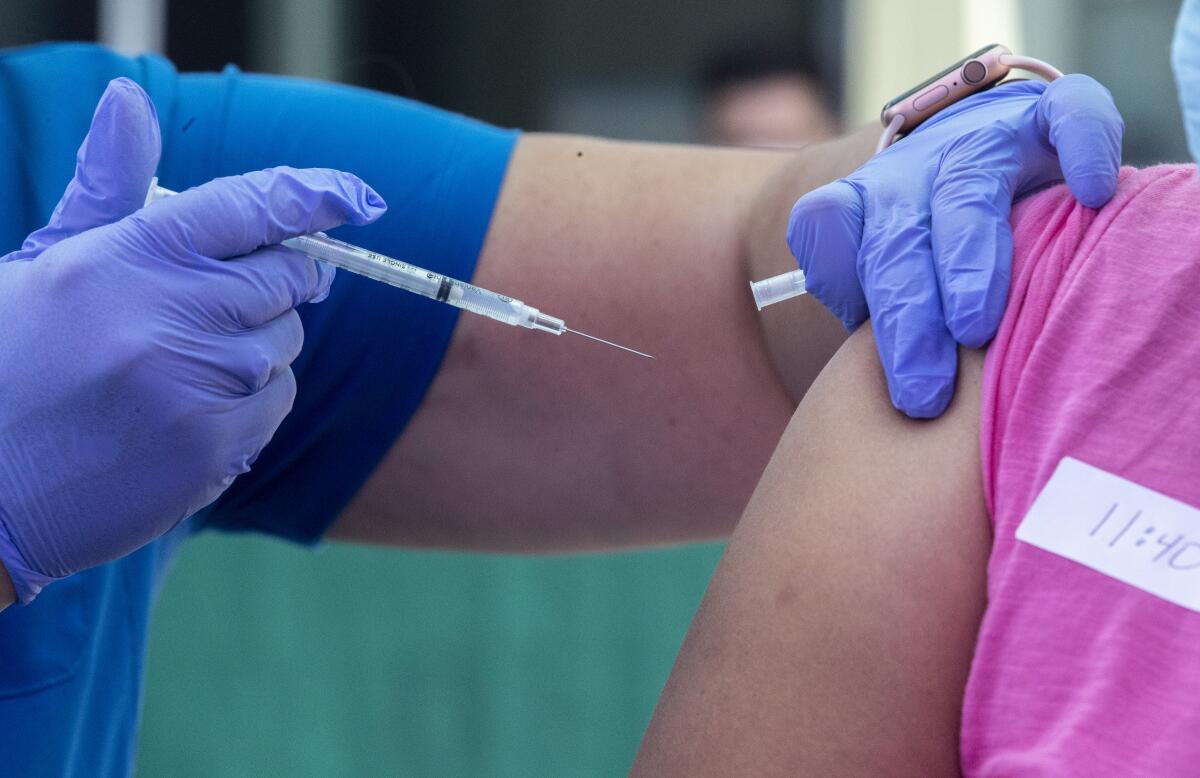
As the highly infectious Delta variant of the coronavirus wreaks havoc on the nation, officials in Los Angeles County have begun offering third doses of the Pfizer and Moderna vaccines to certain immunocompromised people.
The move follows recent guidance from the Food and Drug Administration and the Centers for Disease Control and Prevention, which found that people who are moderately to severely immunocompromised may not be fully protected after receiving two shots. Third doses are now recommended for those individuals.
Here’s what you need to know.
Many health experts believe mask mandates and tougher vaccine requirements will be needed in the coming months to avoid more serious coronavirus surges.
Who is eligible now?
Booster shots are currently available in Los Angeles County for certain immunocompromised people who received the Pfizer or Moderna COVID-19 vaccine.
People approved to receive an additional dose include those who have:
- Been receiving active cancer treatment for tumors or cancers of the blood
- Received an organ transplant and are taking medicine to suppress the immune system
- Received a stem cell transplant within the last 2 years or are taking medicine to suppress the immune system
- Moderate or severe primary immunodeficiency (such as DiGeorge syndrome, Wiskott-Aldrich syndrome)
- Advanced or untreated HIV infection
- Active treatment with high-dose corticosteroids or other drugs that may suppress the immune response
The Biden administration said it also plans to offer booster shots to all adults who have received two doses of the Pfizer or Moderna vaccine starting the week of Sept. 20.
The Biden administration says it will offer booster shots to many people who are already fully inoculated against COVID-19. We answer your questions.
Why is the third dose needed?
Recent studies have found that current protection against severe disease, hospitalization and death could diminish in the months ahead, especially among people who are at higher risk or were vaccinated during the earlier phases of the rollout.
Health officials said booster shots can help maximize protection and prolong the durability of the vaccine.
“Studies have shown immunocompromised people are more likely to have post vaccination infection and become severely ill from COVID-19,” L.A. County public health director Barbara Ferrer said last week. “An additional vaccine dose for some people with weakened immune systems could help prevent serious illness and death.”
Ferrer also encouraged people who are in close contact with immunocompromised people to get vaccinated as soon as possible in order to protect those at higher risk.
The single-day death toll of 35 is among the higher ones in recent weeks.
When should I receive the booster?
The CDC recommends that people with moderately to severely compromised immune systems receive an additional dose at least 28 days after the second dose. Those shots are available now.
The Biden administration said it plans to offer boosters to all eligible adults eight months after their second dose starting in September.
How do I get my shot?
County officials are asking residents who qualify for a third dose to speak to their healthcare provider to confirm their eligibility and get vaccinated. Third doses of the vaccines are accessible through vaccination sites that currently offer Pfizer or Moderna vaccines.
Ideally, people should be vaccinated with the same vaccine they received for the first and second dose, officials said. If that is not possible, receiving a third dose with another mRNA vaccine is acceptable.
The U.S. is planning booster doses of the Pfizer and Moderna COVID-19 vaccines, but if you got the one-dose Johnson & Johnson shot instead, stay tuned.
What are the side effects?
So far, reactions reported after the third COVID-19 dose were similar to that of the two-dose series, the CDC said. Fatigue and pain at injection site were the most commonly reported side effects, and overall, most symptoms were mild to moderate.
As with the initial two-dose series, serious side effects are rare but may occur.
What about Johnson & Johnson?
The FDA is still evaluating data on the effectiveness of the Johnson & Johnson vaccine in immunocompromised people.
A follow-up dose is not currently recommended for those who have received a single dose of the Johnson & Johnson vaccine, although health officials said they expect they will be needed.
More to Read
Sign up for Essential California
The most important California stories and recommendations in your inbox every morning.
You may occasionally receive promotional content from the Los Angeles Times.
